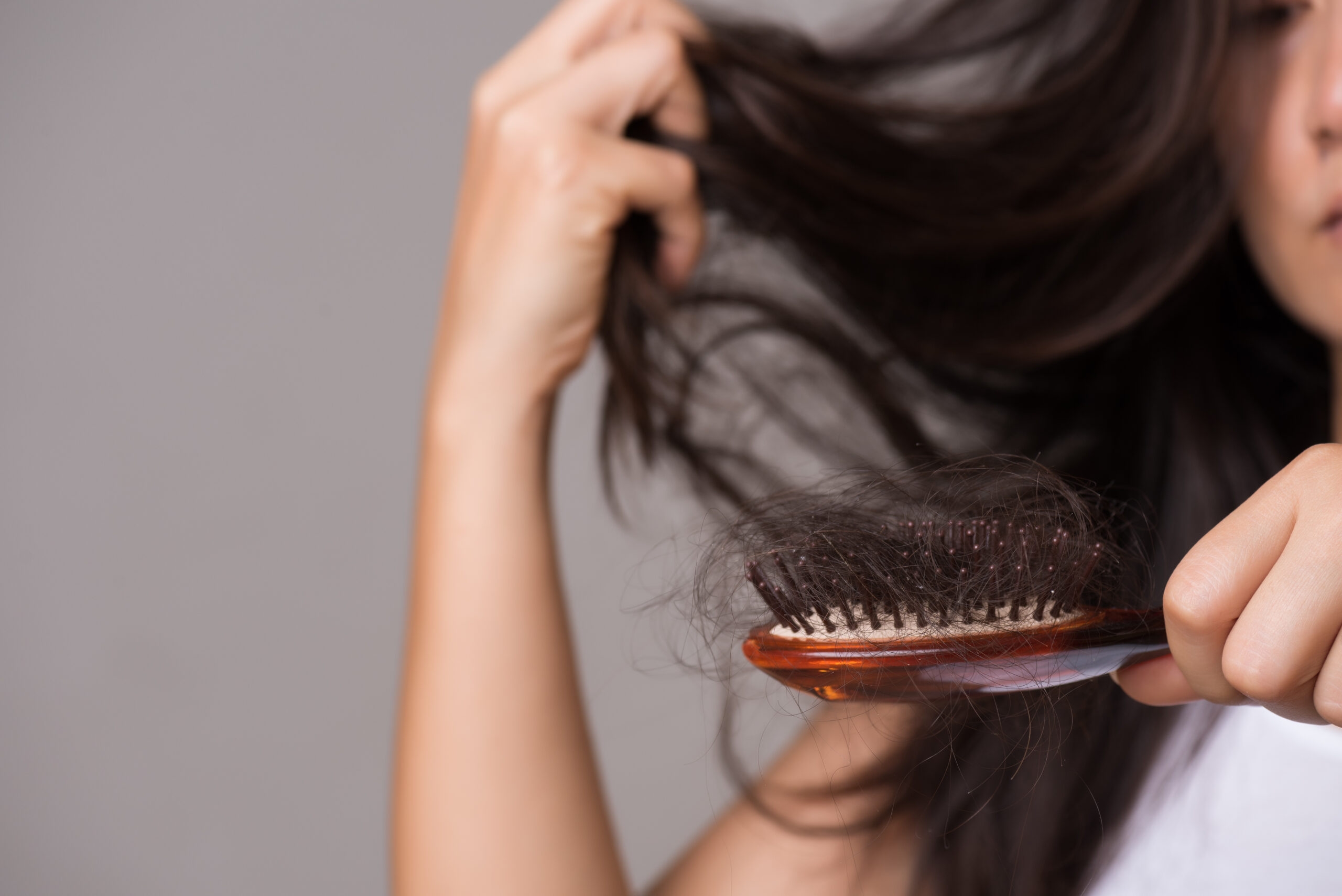Postpartum Hair Loss: What You Need to Know
 October 12, 2021
October 12, 2021 0
0
Postpartum Hair Loss: What You Need to Know
Caitlin Beale, MS, RDNIt's time to be honest: postpartum hair loss is real. It's totally normal, and most women experience it, at least to some degree. But there are things you can do to help minimize hair loss! Read on for all of the details on how this happens, what causes it, and what you can do about it.
Why do you lose hair after having a baby?
During pregnancy, you probably noticed extra thick, glossy hair. That's because the high levels of estrogen in your body help you hang onto more hair and make it grow faster.
But around three to four months postpartum, you may suddenly notice clumps of hair in the shower or in your brush. Many women notice a thinning by their hairline. This is related to the shift in hormones, especially estrogen, making our hair go through a shedding or transitional phase that lasts for about three months before new growth starts again.
But before you panic, most women only go through this for a few months until hormone levels even out again.
What can you do about postpartum hair loss?
While nothing will completely stop the shedding, there are a few things you can try to make sure you are set up for healthy hair:
• Eat lots of protein-rich foods like lean meat, fish, eggs, beans, and lentils. Hair is made from keratin, a protein also found in your skin and nails. Lack of protein can lead to less hair growth or weak hair strands that break more easily. Protein powders can also ensure you are meeting your protein needs (and you need even more with breastfeeding).
• Minimize the amount of stress in your life. Stress can lead to high levels of the stress hormone cortisol. When not well regulated, cortisol can negatively impact your health – including the health of your hair. High levels of cortisol are associated with slow or weak hair growth.
• Ensure healthy iron stores. Iron is an essential mineral needed for blood to carry oxygen throughout the body, and some women may be low • postpartum. Low levels of iron can cause hair loss, fatigue, and decreased immunity. Iron-rich foods include lean meat, fish poultry, legumes, and leafy greens.
• Choose foods high in vitamin C. Vitamin C is usually associated with immune health, but it's also critical for your hair. Vitamin C is necessary for collagen formation, and collagen is what gives your hair its strength and structure. It also helps with iron absorption. Leafy greens like spinach, kale, and broccoli are good sources of vitamin C, as well as bell peppers, strawberries, and citrus fruits.
Postpartum hair loss is inevitable for most new mamas, but the proper nutrients can help slow it down. The amount you lose is different for everyone, but generally, postpartum hair loss stops by about six months postpartum. If you notice you continue to lose hair beyond six to eight months postpartum or think it's more than expected, make sure to check in with your doctor or midwife.


Comments are closed.